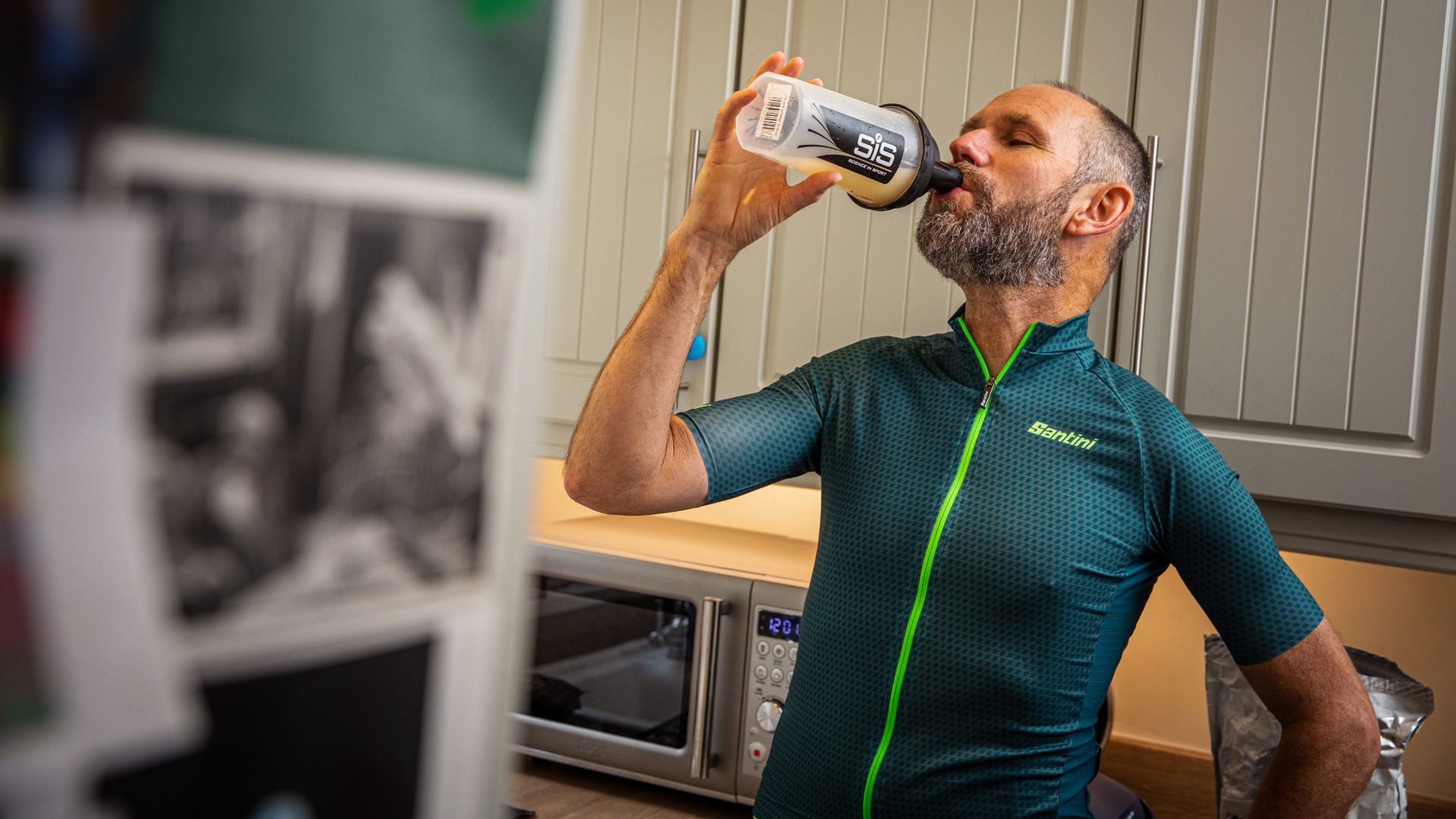Is creatine a useful supplement for cyclists?
One the few supplements with a strong evidence base, creatine promises explosive gains, finds Rob Kemp


Creatine is one of the most popular sports supplements, second only to protein powder in terms of its effectiveness and evidence base. It has a reputation for being a muscle food, coming into its own as a supplement for high-intensity, short duration activities. But it’s a common misconception that creatine’s only purpose is in helping to bulk up – in fact, it has far wider applications.
While creatine does support muscle hypertrophy, there’s plenty of research to show that its primary function – as an energy-storing molecule – is effective across a range of disciplines including running, rowing and riding in helping to generate rapid energy during explosive efforts. Now, that sounds a little more useful for us cyclists, doesn’t it?

Dr Kristyen Tomcik is an assistant professor in the department of nutrition at Case Western Reserve University, Cleveland, Ohio, USA. He earned his PhD in exercise science, focusing on creatine and carbohydrate co-supplementation in elite athletes.

Dr Scott Forbes is a sports scientist at Brandon University, Manitoba, Canada, where he is the department chair of physical education studies. His research focuses on nutrition and training to enhance athletic performance.
What's in it for cyclists?
“Creatine essentially works by giving the [muscle] cells a bit more energy, or an increased capacity for the muscle to do more high-intensity work,” says Dr Scott Forbes. “We have an anaerobic energy system that breaks down creatine phosphate into free creatine and ATP [adenosine triphosphate] very rapidly. Hence, creatine has been mainly used for strength training – short, intense bursts of effort followed by rest periods.” But it turns out it can help cyclists too.
“Aside from steady-state endurance rides, most cycling events require bursts of energy for situations like breaking away from the peloton or out-sprinting a fellow competitor to the finish line,” says Dr Kristyen Tomcik. “Creatine helps meet these demands by quickly donating a phosphate group to form ATP – the body’s primary energy currency.” This rapid energy release can provide that extra push needed for high-intensity efforts during a race.
What does the research say?
In Tomcik’s research, led by sports nutrition expert Professor Louise Burke, he investigated the effects of combining a high-carbohydrate diet with creatine supplementation, known as creatine loading. “We conducted 120km time trials incorporating 1km and 4km sprints every 10km to simulate race conditions,” explains Tomcik. Participants followed a high-carb diet (12g/kg CHO) with or without creatine loading (20g/day for five days, followed by 3g/day). “Our results showed that cyclists who combined high-carb intake with creatine supplementation generated significantly more power during the sprints than those on the placebo.”
Forbes cites Tomcik’s study as a valid example of how creatine can be used by cyclists, concluding: “Bursts of speed rely on the creatine energy system. This is hard to tease out and measure in the lab, but we believe creatine might make the difference between winning and losing a close race.”
How can cyclists reap the benefits of creatine?

Sprint efforts are where you'll really see creatine shine
“Creatine monohydrate is the most commonly used and researched form of creatine supplement,” says Tomcik. “The traditional approach involves a ‘loading phase’ – 20g/day for five to seven days – followed by a ‘maintenance phase’ of 3-5g/day.” The loading phase elevates creatine levels in the muscles, but without maintenance supplementation, levels drop back to baseline. “However, more recent research suggests that taking a consistent 5g per day dose over an extended period is sufficient to maintain elevated creatine stores.
Get The Leadout Newsletter
The latest race content, interviews, features, reviews and expert buying guides, direct to your inbox!
Creatine has also been shown to aid muscle recovery, repair and even enhance cognitive function, such as focus,” adds Tomcik. “This makes creatine a versatile supplement, beneficial not only for physical performance but also for mental clarity, especially during long or intense events.”
What are the limitations?
Creatine supplementation for cyclists is generally safe when taken in recommended amounts, but there are a few potential drawbacks. “The most common side effect is water retention, which can lead to a slight increase in weight,” says Tomcik. “This might be a concern for cyclists, particularly those competing at a high level where power-to-weight ratio is critical. However, the weight gain is typically minimal, usually just a couple of pounds, and temporary.”
Tomcik and Forbes point out that some athletes report minor gastrointestinal discomfort, such as bloating, when starting creatine supplementation. “Usually this can be alleviated by adjusting the dosage or switching to a different creatine brand,” says Forbes. “Ultimately, whether creatine is suitable for a cyclist depends on their individual goals and preferences.”
The bottom line on creatine for cyclists
Creatine is a well-researched, performance-enhancing supplement that benefits cyclists beyond just muscle growth. By increasing ATP availability, it improves sprint power, recovery, and high-intensity efforts, making it valuable for breakaways, final sprints and strength training. While generally safe, creatine can cause temporary water retention, which may impact power-to-weight ratio. You should tailor your supplementation to race demands, training phases, and your body’s response – and be sure to use quality sources for safety and effectiveness.

Thank you for reading 20 articles this month* Join now for unlimited access
Enjoy your first month for just £1 / $1 / €1
*Read 5 free articles per month without a subscription

Join now for unlimited access
Try first month for just £1 / $1 / €1

Rob Kemp is a London-based freelance journalist with 30 years of experience covering health and fitness, nutrition and sports sciences for a range of cycling, running, football and fitness publications and websites. His work also appears in the national press and he's the author of six non-fiction books. His favourite cycling routes include anything along the Dorset coast, Wye Valley or the Thames, with a pub at the finish.
You must confirm your public display name before commenting
Please logout and then login again, you will then be prompted to enter your display name.
-
 'I thought, if the doctor is telling me it's fine, it must be fine - but it wasn't': Battling REDs and spotting the symptoms
'I thought, if the doctor is telling me it's fine, it must be fine - but it wasn't': Battling REDs and spotting the symptomsFormer pro cyclo-cross racer Corey Coogan Cisek assesses the problem of relative energy deficit in sport – REDs – drawing on her own battle with the condition
By Corey Coogan Cisek
-
 SRAM Red AXS 12 months on - Shimano is forced to share the throne
SRAM Red AXS 12 months on - Shimano is forced to share the throneHow has SRAM's Red AXS groupset stood up over the last year, and has it finally made me switch tribe?
By Joe Baker